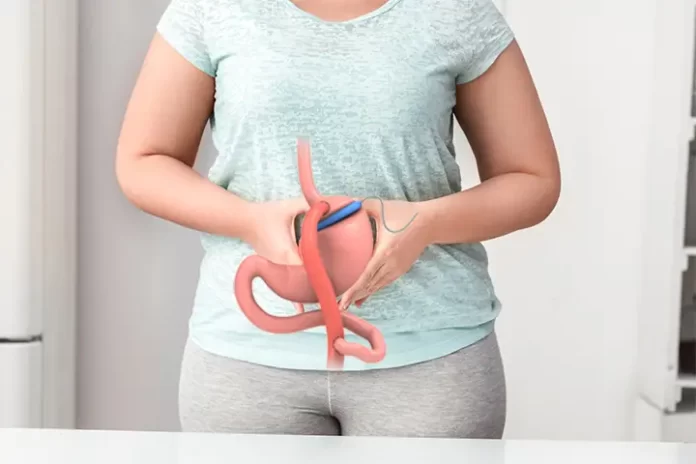Gastric sleeve surgery, also known as sleeve gastrectomy, is a weight loss surgery that reduces the size of the stomach. The procedure works by removing a large portion of the stomach, leaving behind a small sleeve-shaped pouch that limits the amount of food you can eat.
This results in significant weight loss, but many wonders if it also affects their Metabolism.
Table of Contents
The Effects Of Gastric Sleeve Surgery On Metabolism
Metabolism is the process by which the body converts food and drink into energy. It is responsible for burning calories and fueling the body’s functions, such as breathing, circulation, and digestion. Basal metabolic rate (BMR) is the number of calories the body burns at rest, influenced by age, gender, and body composition. A higher metabolism means the body burns more calories, which can lead to weight loss.
So, does gastric sleeve surgery affect Metabolism? The short answer is yes. Studies have shown that gastric sleeve surgery can increase Metabolism, at least in the short term. This is because the surgery reduces the size of the stomach, which leads to a decrease in BMR.
However, the body adapts to the new size of the stomach over time, and Metabolism may eventually return to pre-surgery levels.
The effects of gastric sleeve surgery on Metabolism also depend on other factors, such as diet, exercise, and lifestyle changes. Eating a balanced diet with enough protein and engaging in regular physical activity can help boost Metabolism and maintain weight loss after surgery.
Strength training and high-intensity interval training (HIIT) are particularly effective at increasing Metabolism.
Increasing Your Metabolism
Besides diet and exercise, several other lifestyle changes can help improve Metabolism after gastric sleeve surgery. Sleeping, managing stress, and staying hydrated are also important for overall health and can indirectly impact Metabolism.
However, gastric sleeve surgery is not a magic solution for weight loss. It is a major surgery with risks and complications, such as bleeding, infection, and vitamin deficiencies. You must be committed to making long-term lifestyle changes to maintain weight loss after surgery.
To maintain weight loss after gastric sleeve surgery, have ongoing medical follow-up and support. This includes regular check-ups with a healthcare provider and support from a dietitian and other healthcare professionals. A person’s Metabolism also plays a role in weight maintenance, as a slower metabolism can make it harder to maintain weight loss over time.
What Happens If You Overeat After Gastric Sleeve?
Overeating after gastric sleeve Turkey surgery can have negative consequences and potentially undo the weight loss achieved. Because gastric sleeve surgery significantly reduces the size of the stomach, your capacity to eat is reduced.
Consuming too much food can stretch the stomach pouch, which can cause discomfort, vomiting, and even more serious complications like stomach rupture.
Additionally, overeating after gastric sleeve surgery can lead to weight regain. The smaller stomach size after surgery means that the body is more sensitive to the amount of food consumed, and overeating can lead to a calorie surplus and eventual weight gain.
Avoid overeating after gastric sleeve surgery by following the dietary guidelines provided by your healthcare professional. Including consuming small, frequent meals, chewing food thoroughly, avoiding high-calorie and high-fat foods, and limiting liquid intake during meals.
Also, practice mindful eating and listen to the body’s signals of fullness and hunger.
Turkey gastric sleeve surgery can affect Metabolism in the short term, but the long-term effects depend on various factors like diet, exercise, and lifestyle changes. While the surgery can be an effective tool for weight loss, it is important to understand the risks and complications and commit to making long-term lifestyle changes to maintain weight loss and overall health.















